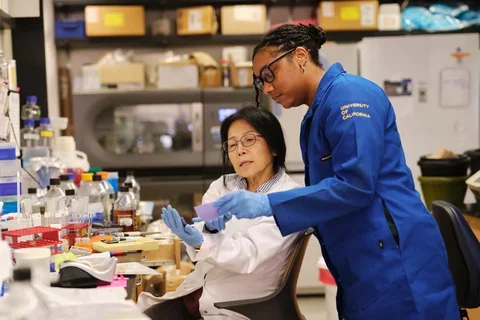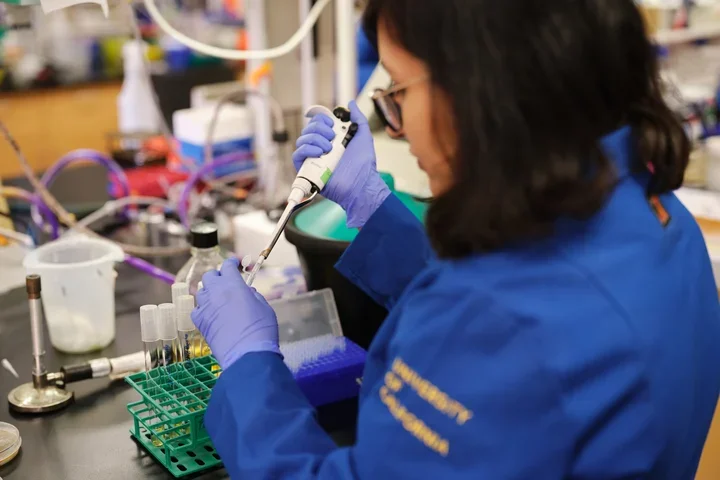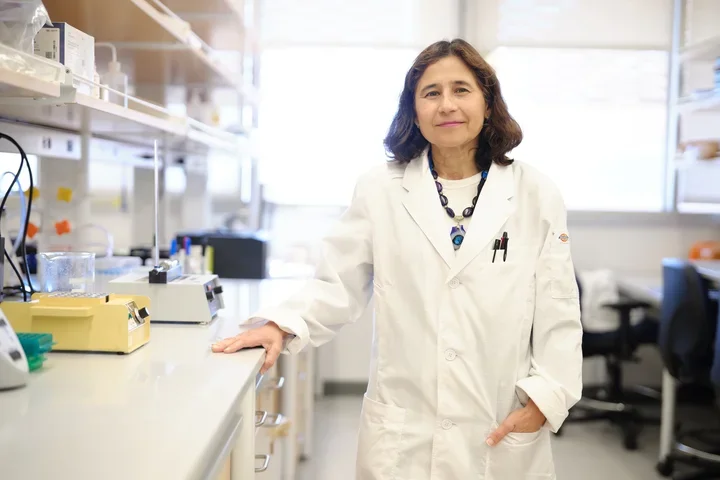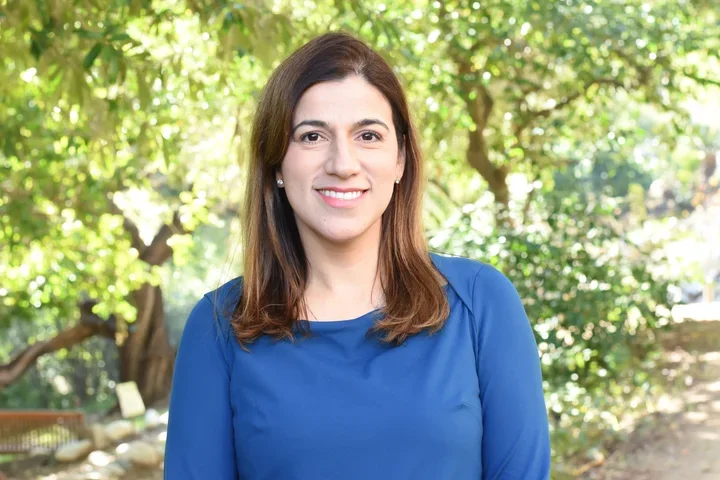#ResearchPowersProgress at the UCLA School of Dentistry
Explore society-shifting research findings from the School, made possible by grant-funded studies.

At the UCLA School of Dentistry, internationally renowned researchers make society-shifting discoveries and place a strong emphasis on training the next generation of scientists. Research areas include not only advancements in oral health care, but also cancer diagnostics and therapeutics, infection and inflammation, and health services affecting communities.
Below is a representative cross-section of recent research findings from the School, made possible by grant-funded studies.
Considering Caries Through Multiple Lenses
Dr. Nini Tran led two studies exploring how Streptococcus mutans interacts with other microbes and specific teeth to influence childhood cavities. They found that high levels of S. mutans can shape the oral microbiome toward more disease-associated species, while its colonization preferences vary by tooth type and development stage, suggesting tailored approaches to caries management.
UCLA Dentistry-Led Study Finds Ingestible Sensor Could Help People with HIV Stick to Medication Regimen
A UCLA-led clinical study tested ingestible electronic sensors embedded in pills to improve adherence to HIV treatment. Participants using the sensor system had higher drug blood levels, reduced viral loads, and 90% reported satisfaction, pointing to the tech’s potential for enhancing medication outcomes.
Does Cell Nucleus Size Matter in Gene Activity? Researchers Say Yes
UCLA researchers discovered that the size of a cell’s nucleus directly affects how chromatin is modified and thus which genes are activated or suppressed. Larger nucleus-to-cell ratios were associated with increased gene activation, offering new insight into how physical cell properties influence biological function.
Researchers Develop ‘Game-Changing’ Dental Implant Technology
A team of researchers led by Dr. Takahiro Ogawa, has culminated a decade of dental implant research with the development of an ultraviolet technology ensuring near-perfect osseointegration — the act of attaching a prosthetic directly to bone. The technology also promises faster healing times and significantly reduced complications for patients.
Make a gift to support The Apollonians Research Fund
Establishing the Oral Microbiome of Latinx Children at the U.S.–Mexico Border
Dr. Yan Wang launched a five-year NIDCR-funded study tracking oral microbiome development in Latinx children living near the U.S.–Mexico border from prenatal stages through age three. The research aims to uncover microbial patterns linked to early childhood caries and inform strategies to reduce oral health disparities.
School of Dentistry‑Led Team Takes Novel Approach to Treating Jaw Osteonecrosis
Dr. Ichiro Nishimura’s team developed a topical treatment using hydroxymethylene diphosphonate (HMDP) to reverse bisphosphonate-related osteonecrosis of the jaw in mice. The method rapidly healed lesions and resolved inflammation, paving the way for human trials that could alleviate treatment fears surrounding bisphosphonates.
UCLA Team Discovers How to Restrict Growth, Spread of Head and Neck Cancers
Researchers found that head and neck cancer stem cells exploit the molecule CD276 to evade immune detection. In mouse models, targeting CD276 with antibodies suppressed tumor growth and metastasis, highlighting a promising new immunotherapy direction for these invasive cancers.
Bugs as Drugs: Harnessing the Power of Nisin
Dr. Yvonne Hernandez‑Kapila is advancing the therapeutic use of nisin, a natural antibacterial peptide, to combat oral cancer, periodontal disease, and systemic conditions. Her lab’s research, backed by a major NIH grant, is testing nisin in clinical trials and exploring its multimodal efficacy—including antimicrobial, anticancer, and anti-inflammatory actions.



